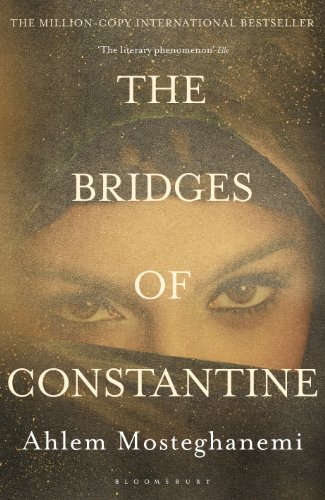The Bridges of Constantine
This book is the first of a best-selling, award-winning trilogy, originally published in Arabic in 1993 and in English in 1999. This re-release of the novel in a new translation by Raphael Cohen is a dual-stranded piece of literature. It is both a stunning tale of Algeria between the 1930s and 1980s, and a heartfelt and painful tale of love and fate felt from within by an artist for a woman who enables him to finally come to terms with his history and his country.
Having served years before as a revolutionary in the Algerian war of liberation, where he became responsible for the child of his mentor, the wounded artist Kahled is self-exiled in Paris. Here fate draws together the tangled strands of his previous life in Algeria through the re-introduction into his life of the child he knew, now a grown woman with whom he falls passionately in love. Fate is determined to have the last laugh, drawing Kahled into an emotional turmoil from which he cannot escape, even years later, even after he believes he has lost his love to another.
The seductive nature of the female protagonist, and the city of Constantine to which Kahled is ultimately pulled, is matched by the interesting prose style of the author. The entire novel is written in the second person, which can be difficult to sustain without irritating the reader. However, the author, I feel, achieves a book in which the narrator talks to his love while never isolating the reader and the ‘I’ becomes the reader’s ally. The female author has told this man’s story adeptly and with believability. It is a beautiful, sad, powerful narrative and is highly recommended to those who like their reading to have a literary, rather than a mainstream, bent.










